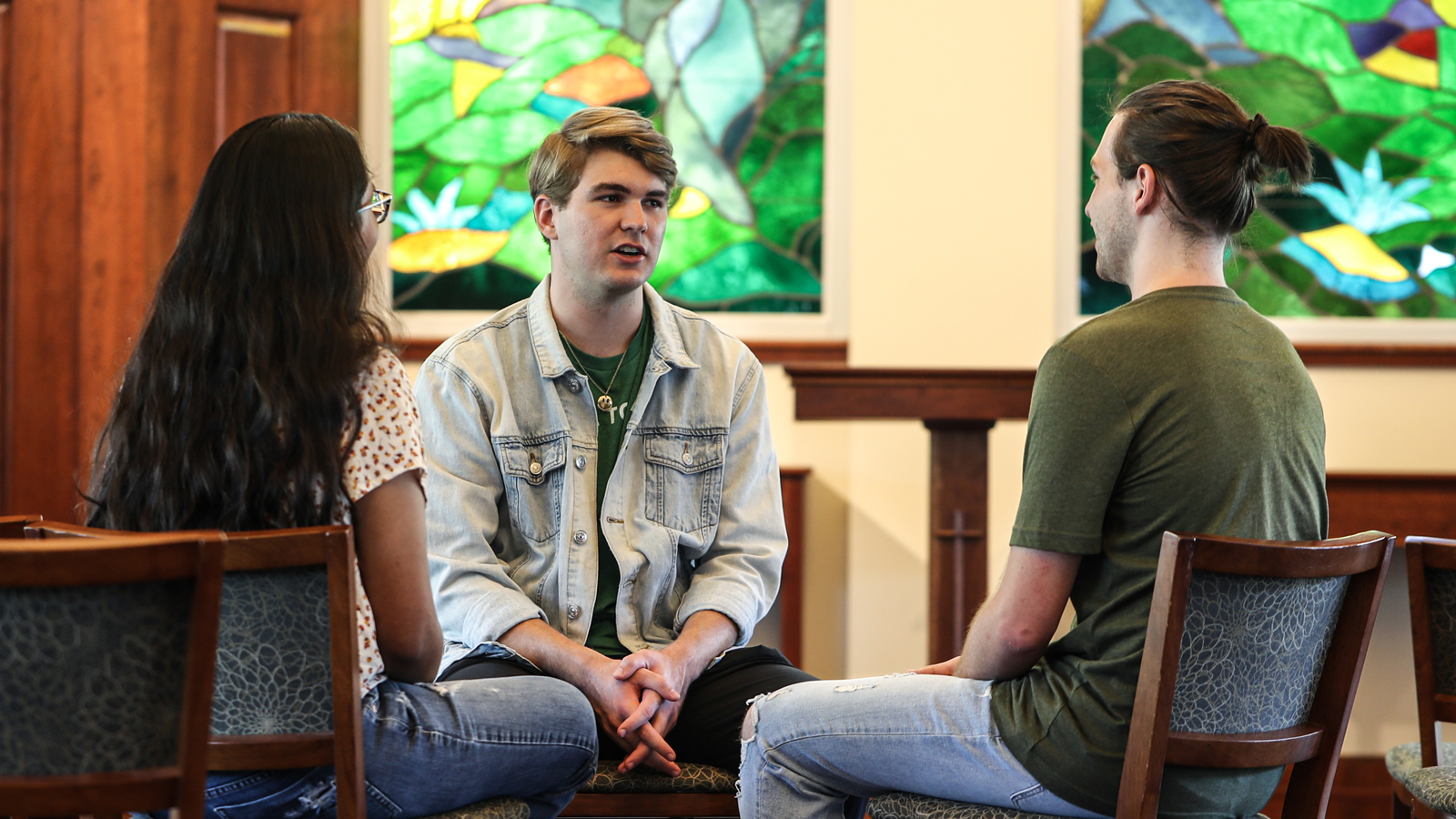Getting to Know Your Resident Chaplain

When a student moves into a residence hall on Baylor’s campus, there are several they will quickly meet in this community — among them are roommates, the residence hall director, student community leaders and the resident chaplain.
That’s right, every residence hall on Baylor’s campus has a chaplain that lives in community with the students.
“Our chaplains want to foster an environment of spiritual wellbeing and of belonging. And so our chaplains want to be your friend. Our chaplains want to get to know you,” Tyler Conway (M.Div ’18), senior coordinator for pastoral care, said. “They're also there to really sit and listen primarily to whatever concerns you have.”
Resident chaplains are a vibrant part of the spiritual community found in residence halls. Although Conway is responsible for the coordination of the training and support of resident chaplains, he says the chaplains work closely with hall directors to see what kind of programming is most effective and helpful for students in their residential communities. Sometimes this looks like a Bible study, coffee hour or shaping chapel alternatives. Other times it's making space for creative and community-specific connection. One resident chaplain initiated sunset strides: He walked his golden retriever on campus and invited residents to come and just walk with the chaplain and the dog. This was a meaningful time for students to talk in a relaxed environment and build community with each other, their chaplain and, of course, a very sweet dog.
Learn more in this Summer 2021 Baylor Magazine article on resident chaplains.
A resident chaplain on campus is an intentional presence, and someone who can point to resources on campus— from helping students set up counseling appointments or finding academic resources — or respond to a crisis in the instance that a student is in the hospital or emergency room or needs support after losing a loved one.
One reason resident chaplains are able to connect with the specific needs of students is because they themselves are students at Baylor’s George W. Truett Seminary. They are supported in their role by two supervisors — their resident hall director and a spiritual life supervisor. They also participate in weekly trainings that address a wide range of topics like hospital protocol, difficult topics in ministry like grief or death, self-care and Title IX training.
Residence halls aren’t the only place you will find chaplains on campus. They are also embedded in some academic units, including one at the School of Business and two in the Baylor Science Building. These chaplains foster spiritual wellbeing in the same manner as resident chaplains but in the context of academic communities.
Conway says that chaplains on campus can meet the need of belonging for students, regardless of their background.
“I like to think of them as interfaith chaplains. And what I mean by that is chaplains that can care for any faith tradition. Our chaplains, of course being Truett seminary students, they have a Christian profession of faith, but they are not limited to caring for just Christian students. We want them to be religiously literate and we want them to approach others with curiosity and understanding and practice listening,” Conway said.
The most important thing Conway hopes that students know about their resident chaplain: “You can just be yourself.”
“They may not have the answers all the time, but they're there to truly care for you and to also know their own limitations and know how to direct you to resources that might be more helpful to you. A chaplain can be a really easy person to talk to first and foremost if you don't know where to go at all.”
So, when you move in or return to your residence hall this August, make sure to stop by, say hi to your resident chaplain—and ask to pet their dog.